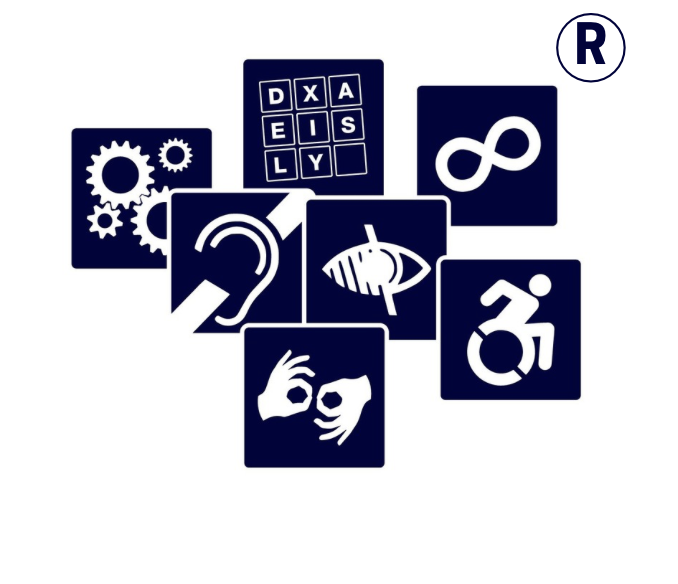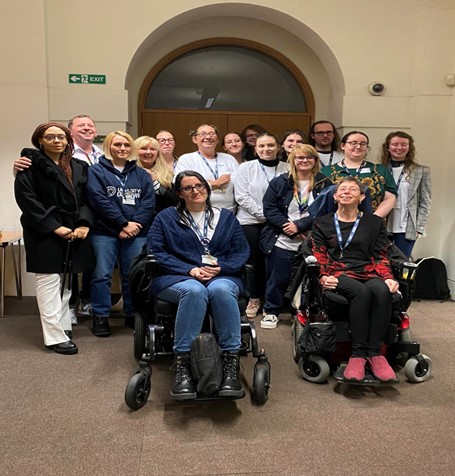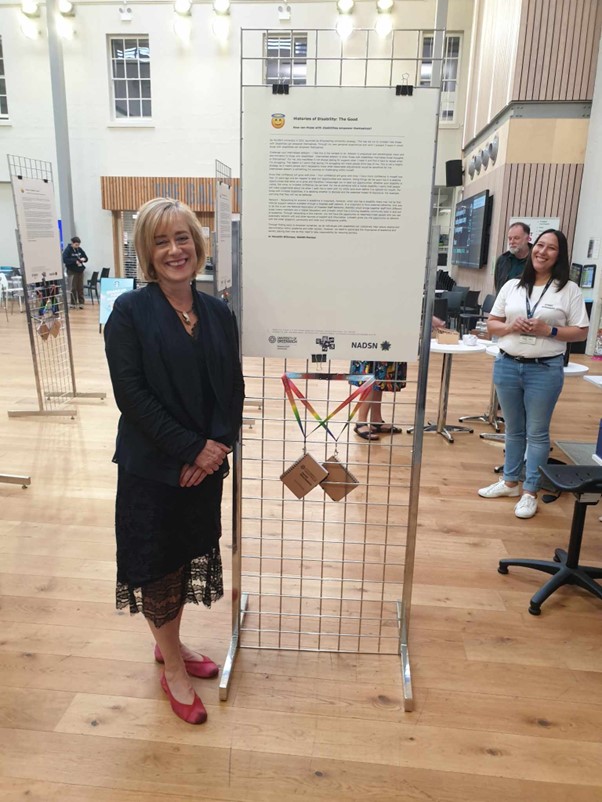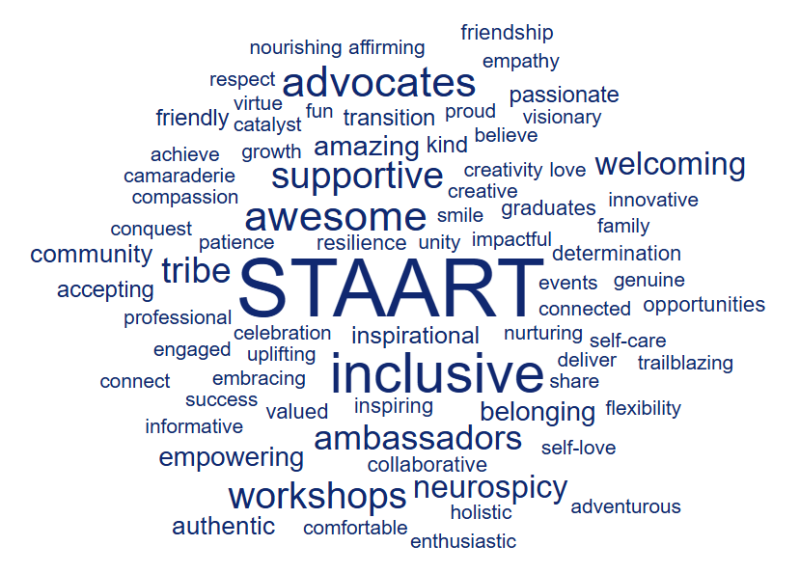An introduction to STAART
STAART is a disability initiative at the University of Greenwich and is unique in the UK. It provides prospective and current disabled students with a realistic expectation of university life, with the option of being part of a peer network.
STAART Synopsis
What do we do?
We provide impartial information, advice and guidance for post-16 SEN/SEND/ALS/disabled students considering higher education. We support disabled students from outreach through to postgraduate studies and/or employment.
Why do we do what we do?
To prepare disabled students for the reality of a university
How do we do it?
Via direct email, social media networks and a monthly bulletin & workshop
Where do we do it?
On campus, schools & colleges and online. We work locally, nationally and internationally.
When do we do it?
Constantly. Whilst we have scheduled workshops and transition days, the majority of our information is available 24/7.
Who is involved?
STAART Ambassadors & Graduates, internal and external teams and organisations; current and future disabled students.
Any questions and/or clarifications, please email staart@gre.ac.uk
More information:
- STAART | Support | University of Greenwich
- University of Greenwich-STAART | Facebook
- STAART ART | Facebook
- Dr. Melanie Thorley STAART University of Greenwich | LinkedIn
Dr Melanie Thorley
STAART Manager
November 2025
STAART Principles of Disability (SPoD)
These principles have been created by self-selected University of Greenwich (UK) disabled students, disabled graduates, and disabled staff:
- Disability includes physical impairments; neurodivergence (autistic and dyslexic spectra); mental health conditions; long-term health conditions; and/or potentially life-shortening illnesses.
- We are not embarrassed and/or ashamed of our disabilities.
- Some days are better than others.
- Sometimes it may take us longer to work or study than our non-disabled peers, although sometimes we are quicker than our non-disabled peers to achieve the same results.
- We are capable of great achievements.
- Ninety-two per cent of our disabilities are not visible.
- Disabled peers can be our greatest allies and successful supporters.
- We are disabled people, not people with disabilities. We are (mostly) disabled by the environment and attitudes rather than our bodies and brains.
- We are experts by experience (of our disability/disabilities).
- We come in different shapes, sizes, colours, faiths, and genders.
Thank you to all the disabled students, graduates and staff members who contributed to the SPoD consultation. If you have any comments/suggestions/queries, please email:
Dr Melanie Thorley
STAART Manager
Launched on 2 December 2022

Background
STAART is a disability initiative at the University of Greenwich and is unique in the UK. The purpose of STAART is to provide prospective and current university disabled students with a realistic expectation of university life, with the option of being part of a peer network. We do not request any medical and/or psychological evidence to join our activities. We also provide monthly online workshops and share information via our social networks.
Our outreach provides impartial information, advice and guidance for post-16 SEN/SEND/ALS/disabled people considering university. We can provide workshops and attend careers/futures events in local schools and colleges. Post-16 prospective learners can join STAART as a future student.
Our inreach concentrates on the informal aspects of being a disabled student at the University of Greenwich with a strong emphasis on belonging. We also employ self-selected, self-identifying disabled University of Greenwich students as specialist STAART Ambassadors. We do not replicate support provided by the wellbeing teams at the university, as we focus on belonging and the informal aspects of university life.
STAART Ambassadors & Graduates
The University of Greenwich have employed students as student ambassadors since 2004. In 2007, the university realised that we did not have any disabled student ambassadors. As we are a university which strives to be both inclusive and reflective of our local populations, it was decided that we would have a specialist cohort of self-selected disabled ambassadors. Originally know as *AccessAbility Ambassadors, they are now STAART Ambassadors (& Graduates).
In 2007, we (myself and the widening participation team) invited self-selected and self-identified current University of Greenwich disabled students to apply to become specialist ambassadors. We interviewed and appointed three disabled students. Initially, the *AccessAbility Ambassadors took part in occasional school/college visits, provided student life presentations at our campus events, which progressed to having a desk at open days and similar events.
In the past 16 years, we have trained nearly 400 *AccessAbility/STAART ambassadors. They have been undergraduates & postgraduates; international & home students; full time & part-time students; and a variety of shapes, colours, genders, ages, personalities, etc. They are an astounding and exceptional group of individuals. STAART Ambassadors are mostly undergraduates and STAART Graduates are students who worked as STAART Ambassadors before undertaking their postgraduate studies with us at the University of Greenwich.
STAART has continued to change and evolve over the years. We started on a very small scale, and STAART is now bigger and better than it has ever been, although our initial reason for employing specialist disabled ambassadors is fundamentally the same. STAART Ambassadors undertake both standard ambassador work and specialist STAART work. We have STAART Ambassadors who work with the outreach and recruitment teams, student engagement team, provide peer mentoring, are involved in clearing, and many other opportunities. Our STAART Ambassadors and Graduates have a different uniform (t-shirts are currently white with blue writing) from the standard ambassadors (their t-shirts are blue with white writing). This is to differentiate the two groups as STAART Ambassadors are involved in so many aspects of the university but they are proud to be positive role models for future disabled students. You can find a variety of blogs and articles about our STAART Ambassadors & Graduates dotted throughout the STAART webpages and wider University of Greenwich webpages.

STAART Ambassador and Graduate Spotlights
Having STAART during my degree was an immense support. It was like having cheerleaders all the way to the finish line. With every struggle, there was always someone there to give me support or listen to me. - João Martins
STAART is one of the main reasons I came to the university, and one of the biggest driving factors that kept me going. - Bradley Cory
I've made a lot of friends through STAART. I credit the group and Melanie for how well I've managed to juggle study, life, care responsibilities and work. I couldn't have got through it without them. - Zoe Robinson
STAART has been integral to my experience as a disabled student. It has given me the confidence and the opportunity to do things I would have never imagined possible two years ago. -Rebecca Cordina
Before I joined STAART, anxiety made me quite unconfident and uncomfortable speaking to people. Since becoming a STAART Ambassador, my confidence has grown significantly, and the experience has helped me develop both personally and professionally. - Katrina, Pharmaceutical Science.
Before joining STAART, I was a bit reluctant to discussing my neurodivergence. Since I joined, I have become more confident in talking about it. I have also had the opportunity to connect with like-minded people who face similar issues to me. This has helped me to grow my confidence more. - Tulsi, Digital Communications.
Before STAART, I struggled with my trust. Constant negative experiences with people made it difficult to be authentic around peers. In STAART, I am truly accepted for who I am and able to remove the mask I hid behind constantly growing up. - Scarlett, Biomedical Sciences.
As an autistic student, I’ve often felt anxious and worried about fitting in, so finding STAART has meant a lot to me. It’s given me the chance to meet people who understand my experiences and make me feel less alone. Becoming an ambassador has helped me grow in confidence, and I’m genuinely grateful for the support and community STAART has given me. - Tim, Pharmacy.
STAART has given me a true sense of belonging and family. I always feel accepted within the STAART community and never have to mask who I truly am, as I’m surrounded by people with living experience. Being an ambassador has shown me that people will accept me for who I am — and that it’s okay to embrace that. Having the opportunity to share this with prospective and current disabled students at events and open days has been an absolute privilege. - Nicole, Psychology.
I loved my time as a member of STAART and working as an ambassador. It was a unique opportunity to feel like my dyslexia and personal experiences were valuable rather than something that I needed to hide, which built up my confidence in public speaking. - Zoe, Human Nutrition
STAART has supported me in many ways including providing me with skills & qualities in regards to getting a job . This scheme allowed me so many opportunities and gave me the assistance & assurance to get through university and have the most wonderful time. This service is a vital one that has given me so much happiness. - Dami, Business Studies
Before joining STAART, navigating university as a disabled student often felt overwhelming and isolating. Becoming a STAART Ambassador has given me a strong sense of belonging, boosting my confidence and helping me advocate not only for myself but for others as well. STAART has genuinely transformed my university experience supporting me personally, and empowering me to grow into a more confident and capable version of myself.- Ijaz, International Business
STAART gave me the drive, resilience and a purpose to thrive during my time at the university and beyond. I could not have achieved a first class degree without the support and encouragement of Melanie and the wonderful STAART family. - Zoe, Adult Nursing
Having STAART during my degree was an immense support. It was like having cheerleaders all the way to the finish line. With every struggle, there was always someone there to give me support or listen to me. - João, Psychology
STAART is one of the main reasons I came to the university, and one of the biggest driving factors that kept me going. - Brad, PhD
I've made a lot of friends through STAART. I credit the group and Melanie for how well I've managed to juggle study, life, care responsibilities and work. I couldn't have got through it without them. - Zoe, MSc
STAART has been integral to my experience as a disabled student. It has given me the confidence and the opportunity to do things I would have never imagined possible two years ago.- Becca, Biology.
Histories of Disability Anthology
Chapter One
*trigger warning
July is Disability Pride Month1, a time to remember and honour the history, celebrate the achievements, and recognise the struggles of people within the disabled community.
Disability Pride Month enables everyone to celebrate what makes them unique, promoting visibility and providing a platform for mainstream awareness of disabilities; including long-term health conditions and mental health difficulties. The month is a short period in time to remind individuals who are disabled or allies that many people have overcome barriers to get to where they are today. There have been amazing individuals throughout history who have made major differences in the lives of those living with disabilities.
Disability Pride was started as a single day of celebration in 1990 in Boston, USA. The USA also passed the Americans with Disabilities Act 1990 which prohibits the discrimination of individuals with disabilities in all areas of public life, including jobs, schools, transportation, and all public and private places that are open to the general public. The UK followed suit much later commemorating and celebrating Disability Pride Month for the first time in 2017 in Brighton.
The Disability Pride flag was adopted in 2015 and redesigned in 2021 (below)2 has a number of elements, the background, the road shapes and colours.

The charcoal background – to represent those in the community who have been subjected to ableist violence, as well as representing protest in the community. The “band/road” shape – represents how disabled people face barriers and have to navigate their life according to them. The different colours in the shape represent the creativity in navigating life, and how the community is breaking free from authority. The colours – the colours represent the various experiences and needs (mental illness, developmental disability, invisible disabilities, physical disabilities, and sensory disabilities) in the disabled community.
The University of Greenwich continues to champion the work of the late, Professor Mike Oliver who was a pioneer in disability studies. Professor Oliver is credited with coining the social model of disability. The University of Greenwich powers on accelerating the work of Professor Oliver through the initiative of STAART, Support Through *AccessAbility - Retention and Transition which was created to support disabled and dyslexic students through their higher education journeys. The STAART Principles of Disability (SPoD) could not have been created without the foundations laid down by Mike Oliver.
Disability Pride Month 2023 saw the joining of STAART, the University of Greenwich Disabled Staff Community (DSC) and the National Association of Disabled Staff Networks (NADSN) together to create a unique exhibition: Histories of Disability: The Good, The Great, The Bad, The Ugly showcasing the experiences of disabled students, staff, and allies. The exhibition includes poignant moments in time; and figures of great importance to the disabled community and personal experiences. The exhibits have been allocated to each of the four sections in the exhibition title, with relevant emojis. There are also trigger warnings on the exhibits which maybe confronting. However, we also have joyful and celebratory exhibits. The official opening of the exhibition took place on 14th July 2023 on the Greenwich Campus where the University of Greenwich Vice Chancellor, Professor Jane Harrington provided the official welcome.

![]()
The exhibition itself has been created to be portable. The exhibition was showcased on our Medway campus (ME4 4TB) through Disability History Month from 16th November to 16th December 2023. Please contact staart@gre.ac.uk if you are interested in hosting our collective exhibition.
** We recommend the exhibits are for post-16s only due to some of the confronting content.
1 What is Disability Pride Month? | Inclusive Employers
2 Disability Pride Flag | Good Housekeeping
Chapter Two
Chapter Two of the Histories of Disability Anthology was launched on Friday 14 November 2025 on our Medway campus and on MS Teams. As with Chapter One, this chapter was a collaboration between STAART, the University of Greenwich Disabled Staff Community (DSC) and the National Association of Disabled Staff Networks (NADSN). All three of these organisations are comprised of disabled folks with a wealth of living experiences of disability. Fifty-five STAART, DSC, NASDN members and allies attended the launch online and in-person including fifteen of the authors.
Chapter Two is a collection of 29 articles ranging from personal journeys to historical figures, some are joyous and some are distressing, but all of the articles are thought-provoking. To maintain the mental health of our readers, there is an emoji system to indicate if the articles are great, good, bad or ugly. If your mental health is not so great, we suggest you skip the bad and ugly articles and read at a later date.
Thank you to all of the authors for their contributions; colleagues in the Drill Hall Library who printed and displayed the article posters; our speakers at the launch, including Professor Nancy Henson from the University of Manitoba in Canada); to Nicole for the editing and formatting the articles; Natalia for facilitating the Teams attendees; and a huge thank you to the fifty five colleagues who took the time and energy to attend our launch.
Click here to read the Digital Version of the Histories of Disability Anthology: Chapter Two.
You can also view the gallery of authors here.
STAART Briefings
STAART Briefings are a summary of one particular topic. The briefings are created by our STAART Ambassadors and Graduates. We will cover a variety of topics which will be useful for any post-16 disabled students, family and friends of disabled students; and school, college & university staff. The information is in bullet points with a list of useful resources if people would like more information.
Our External Partners
AchieveAbility
AchieveAbility is a user led charity committed to working with adults who are neurodivergent and dyslexic. To do this, we work with our partners by providing opportunities for published research-informed work and by delivering practice in the fields of employment, education, training, social justice and cultural change. We are particularly proud of our innovative e-journals which welcome neurodivergent authors to share their experiences and their work. STAART & AchieveAbility are active partners as Melanie (STAART Manager) is an Emeritus Director as she was on the executive board until Summer 2025.
Evenbreak
Evenbreak is a global disability inclusive recruiter run by and for people with a lived experience of disability. Evenbreak advertise graduate jobs plus internships and placements, alongside training; careers advice and resources; blogs; newsletters, and a wealth of further information for recruiters and job seekers. Evenbreak advertise their opportunities via the Employability job board and attend our employability and careers events.
STAART & Employability
STAART has always worked with our colleagues in the Employability Team as we share the STAART Ambassadors, but we have been proactively collaborating on a number of joint campaigns and initiatives for the past 18 months:
Kickstart your Career
STAART has partnered with our colleagues in the Employability and Apprenticeships Directorate to encourage our disabled students to engage with the employability team in their first term of their first year studying with us at the University of Greenwich. We have created eight two-minute videos explaining what is available and the benefits of accessing the wide range of information on offer. We will be sharing the videos across the STAART and Employability social networks in addition to being hosted on the STAART webpages. Whilst these videos were created primarily for University of Greenwich disabled students, all universities have employability/careers services and will replicate some of the support themselves. Here are the links to the videos:
Scarlett STAART Ambassador: Workshops and Events - Scarlett STAART Ambassador
Timothy STAART Ambassador: Placements and Interships - Timothy STAART Ambassador
Nicole STAART Ambassador: Employability Pop-ups and 1-2-1’s - Nicole STAART Ambassador
Fiona STAART Ambassador: Fiona STAART Ambassador
Brad STAART Graduate: Brad STAART Graduate
LucySTAART Ambassador: Evenbreak – disability inclusive recruiter and Access to Work - Lucy STAART Ambassador
Savannah Skills Advisor: Savannah - video-20250505-224907-07f1a960
Employability Champions:TargetConnect-video-20250506-104939-7c8c08ac
- STAART Instagram: https://www.instagram.com/staart2024/
- STAART LinkedIn: Dr. Melanie Thorley STAART University of Greenwich | LinkedIn
- STAART Facebook: University of Greenwich-STAART | Facebook
STAARTConnect
STAARTConnect was launched in September 2025 and is a joint initiative between STAART and the Career Mentoring Team (CMT) within Employability. Whilst the CMT have facilitated matching mentors to mentees for a number of years, this is the first year of collaborating with STAART.
Between us, we are enabling disabled students to request a disabled mentor. All mentors who volunteer their time to support University of Greenwich students bring wisdom and insight but disabled mentors may also have a similar experience of navigating education and the workplace with a disability; neurodivergence; mental health condition and/or a long term health condition.
As this is such a new and exciting endeavour, we cannot provide any evidence of this new system working as yet, but hopefully we will have some news to share from Spring 2026. In the meantime, you can find our more information here: Meet employers and network | Careers | University of Greenwich
STAARTConnected
Name is launching in January 2026. Many University of Greenwich students have the option to complete an industrial placement (9-12 months) as part of their studies. STAART has teamed up with the Placements & Internships Team (PIT) to provide additional support for any of our STAART students on placement. Our new joint project will not replace any existing support mechanisms but hopefully add a little bit extra, and will be an option for both UK and placements abroad. Our disabled students will be offered a 30 minute Teams call every fortnight throughout their placement with a STAART Ambassador.
This will enable our STAART students to stay connected to STAART and receive peer support at the same time. The Teams calls will be via teams and recorded for the placement student to refer back to if need be and the student and STAART Ambassador will be supported by staff in STAART and PIT. You can find more about our generic placements here: Get work experience | Careers | University of Greenwich

STAART Social and Community
Find us on Facebook, Instagram and WhatsApp (for current students only) and discover other ways our members can contribute to the STAART community.

STAART Resources and Publications
Find the latest updates and view our articles and art competitions.

Adapting to university
These tips will help you adjust to university if you have a disability or require additional support.

STAART Principles of Disability (SPoD)
The STAART Principles of Disability (SPoD) have the potential to create a more disability-friendly environment for our students, staff and visitors. Working towards these principles has the possibility of having a positive impact.
